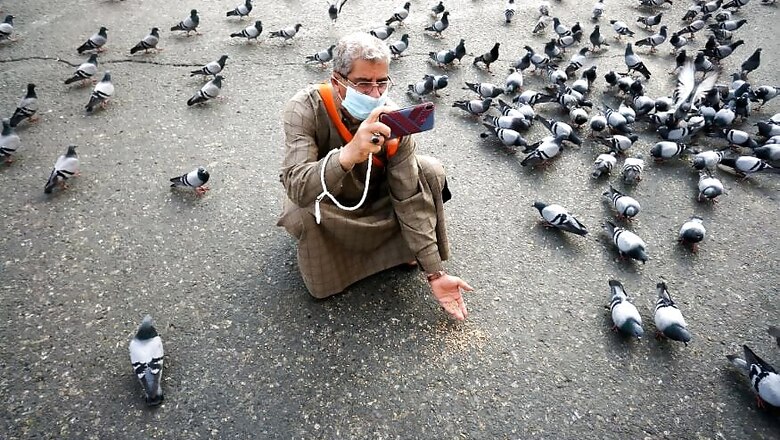
views
New Delhi: India is ascertaining the possible impact on Indians of the sweeping measures adopted by several countries in the Gulf region like United Arab Emirates and Qatar to contain the coronavirus pandemic.
Government sources said that Indian missions in the region have been told to extend all possible assistance to the Indians in distress in the wake of the pandemic.
Around eight million Indians are living in the Gulf countries and there has been growing anxiety among them over their livelihood in view of the pandemic as it has majorly impacted the oil-driven economy of the region.
Almost all Gulf countries have taken a series of drastic measures including imposing total lockdown, travel restrictions and even closing borders to stem the spread of the coronavirus infection.
The United Arab Emirates has already warned of possible action against countries refusing to allow their citizens to return.
Around 3.3 million Indians are living in the UAE and they constitute roughly 30 per cent of the country's population. Among the Indian states, Kerala is the most represented followed by Tamil Nadu and Andhra Pradesh.
A large number of Indians are working in the construction sector in Qatar which is hosting the FIFA world cup in 2022.
India is ascertaining the veracity of the reports, government sources said when asked about possible impact of the measures on stranded Indians.
Saudi Arabia, a leading oil producer, has indefinitely extended a nationwide curfew to combat the pandemic.
The number of coronavirus cases in the region is on an upswing with the combined total in Saudi Arabia, Kuwait, the United Arab Emirates, Qatar, Bahrain, and Oman nearing 14,000, and 100 deaths.
As a matter of policy, India has decided not to bring back the stranded Indians from abroad till the nation-wide lockdown ends. Though the current spell of 21-day lockdown is ending Tuesday, the government is set to extend it by another two weeks with some relaxation.
The issue of Indians in Gulf region figured prominently during Prime Minister Narendra Modi's video conference with heads of Indian missions abroad on March 30.
Welfare of Indians in the Gulf was the major focus area in the discussions Modi had with leaders of countries in the region over the last few weeks, officials said.
Over the last few weeks, Modi has been holding consultations with leaders of several Gulf nations, including Saudi Crown Prince Mohammed bin Salman with whom he spoke on March 17 to discuss the COVID-19 situation.
Modi has also spoken to Abu Dhabi Crown Prince Sheikh Mohammed Bin Zayed Al Nahyan, Qatar Emir Sheikh Tamim Bin Hamad al Thani, Kuwaiti Prime Minister Sheikh Sabah Al-Khaled Al-Hamad Al-Sabah and Bahraini King Hamad Bin Isa Al Khalifa.
During these discussions, one of the primary issues raised by Prime Minister Modi was the wellbeing of the Indian diaspora in these nations, officials said.
The prime minister personally requested the leaders to ensure wellbeing of the Indian community there, and each of these leaders gave strong assurances that the Indian diaspora will be taken care of in these tough times, they said.
Asked about US President Donald Trump's announcement of visa sanctions on countries refusing to repatriate their nationals, sources said India is in touch with Washington on the issue.
"We have been in touch with the US Government requesting them to extend the validity of visa of Indian nationals (H1B and other types of visa holders) who are stranded in the US due to the pandemic," said a source.
"We are closely monitoring related developments," the source added.
Trump on Friday announced a new visa sanction norm, providing for visa denial to citizens of countries which either deny or dilly-dally in repatriating their citizens during the COVID-19 pandemic.
Trump issued the memorandum for visa sanctions, which would be effective immediately and valid till December 31, this year, saying the countries "denying or unreasonably delaying" the repatriation of their citizens would be deemed to be causing "unacceptable public health risks for Americans".




















Comments
0 comment